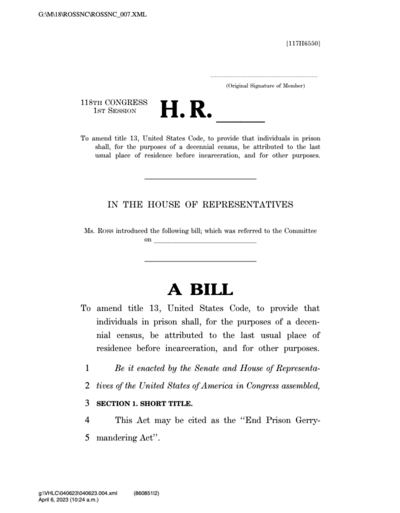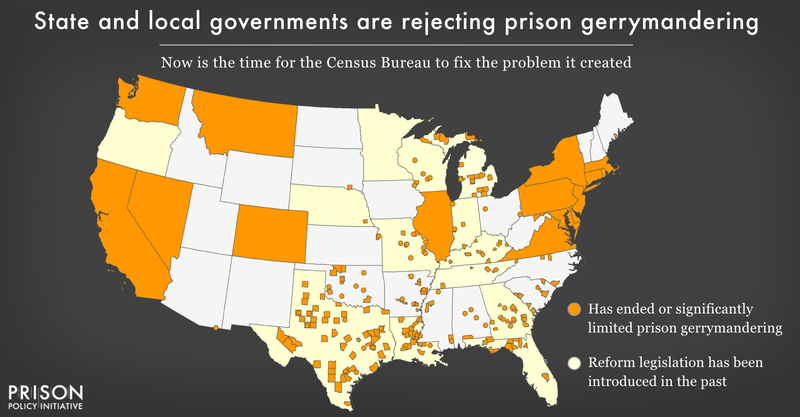Congresswoman Ross introduces bill to end prison gerrymandering nationwide
Federal legislation would require the Census Bureau to count incarcerated people at their true homes, rather than in prison cells.
by Danielle Squillante, April 26, 2023
Today, Congresswoman Deborah Ross from North Carolina, along with Rep. Mark Pocan of Wisconsin, Rep. Emanuel Cleaver of Missouri, and Rep. Emilia Strong Sykes of Ohio, introduced legislation to end prison gerrymandering nationwide. The bill would require the Census Bureau to count incarcerated people at their last known residence rather than their prison cell, which is where the Bureau currently counts them. When states and local governments draw political districts using Census data that counts incarcerated people in prisons, they unintentionally enhance the representation of people who live near prisons while diluting the representation of everyone else. This legislation would ensure that every community receives equal political representation.
The introduction of this bill comes on the heels of Montana — with wide bipartisan support — passing legislation to end prison gerrymandering in the state permanently. Montana Governor Greg Gianforte signed the measure — which received near-unanimous support — into law yesterday.
The Census Bureau has the ability to fix this problem on its own but thus far has stubbornly refused to do so. There are plenty of reasons for it to make this change:
- Governments are increasingly rejecting the Bureau’s flawed way of counting incarcerated people, signaling the agency is not meeting its responsibility to provide data that is ready for use by state and local governments;
- The Bureau’s way of counting incarcerated people ignores the realities of modern incarceration;
- Communities of color are disproportionately harmed by prison gerrymandering; and
- The Bureau’s policy treats incarcerated people differently than others in similar situations.
State and local governments already recognize the importance making this change. Roughly half of the U.S. population lives in a place that has taken steps to end prison gerrymandering, with over a dozen states and over 200 local governments — both urban and rural — taking action on this issue. In the absence of a federal solution, these states and local governments have had to make corrections and adjustments to Census data to ensure it accurately reflects its population. After the 2020 redistricting process, states expressed frustration with the current process and challenges they faced, including accessing data in a timely manner, adjusting the data so it aligns with state laws, and getting address information for individuals in federal custody.
The best way to solve this problem is for the Census Bureau to change its policies to count incarcerated people at home — something it can do today without legislation. By acting to make this change now, before legislation is passed, the Bureau can develop a comprehensive research and implementation plan that ensures this transition is smooth and thoughtful. However, today’s bill shows that if the agency fails to act, lawmakers in Congress are increasingly ready to force it to finally fix this problem.





